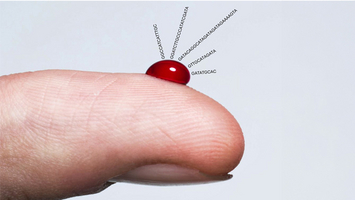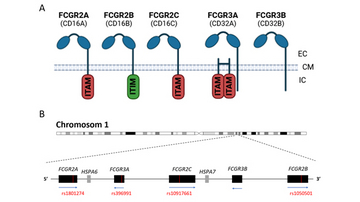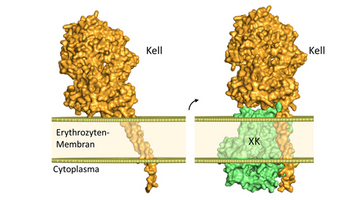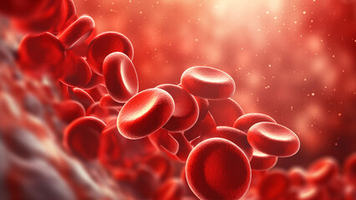Translational Medicine
Reference-Genome Blood Groups
Principal Investigator: Prof. Dr. Christoph Gassner
Collaboration with: Prof. Dr. Andre Franke, Institute of Clinical Molecular Biology (IKMB), University of Kiel
Routine blood group detection is currently still carried out with standard serological methods, e.g. the so-called agglutination method. In parallel, since the early 1990s, the elucidation of the genetic code of nearly all (> 99%) transfusion relevant antigens has been achieved. Hence, over the past 20 years, the use of DNA-based methods in blood group diagnostics has strongly increased.
Learn more
Genetic mapping of the Fcγ-Receptor Locus on Chromosome
Fcγ-Rezeptors (FCGRs) are an integral part of the human immune response. These receptors are found on a number of different immune cells and interact with the “Fc” parts of bound antibodies. Hence, they act as a sort of tranlslator of a binding of antibodies to e.g. pathogens to subsequent immune reactions, which will then have either a stimulatory or an inhibitory effect. [...] Learn more
Visualisation of Blood Group Antigens
At the ITM, a database for all proteins that exist on the surface of erythrocytes is being developed. The database will contain all proteins that carry blood group antigens, including all known variants. This new resource combines available information about genetic polymorphisms with information on the function and 3D structure of the proteins. Learn more
ISBT – THE KEY TO BLOOD TRANSFUSION – AT THE UFL
The International Society of Blood Transfusion (ISBT), founded in 1935 and based in Amsterdam, is dedicated to the continuous expansion and documentation of knowledge about blood transfusion. More than a dozen working groups of this society deal with various aspects of transfusion safety, such as e.g. detecting viruses, finding donors, framing quality control guidelines etc.





